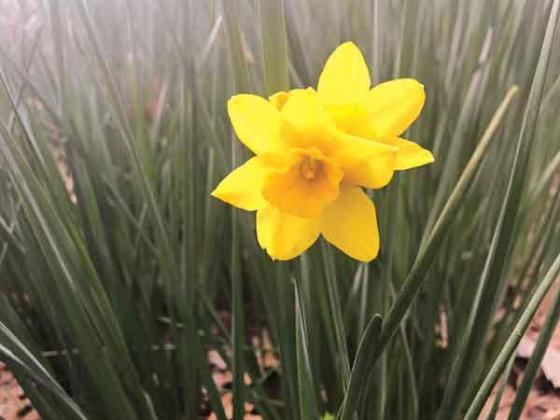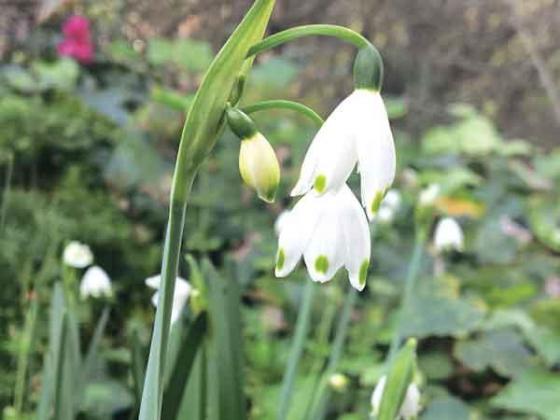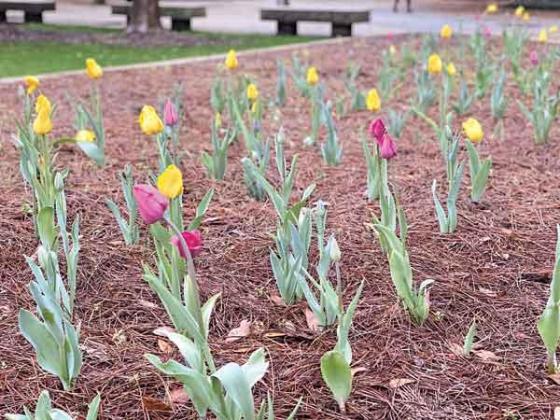


Heather Kirk-Ballard /LSU AgCenter horticulturist
Now is time to purchase those spring-flowering bulbs such as daffodil, snowdrop, tulip, narcissus, hyacinth and crocus bulbs to allow them enough chilling hours to bloom in the spring.
Chilling hours are necessary for bulbs that are native to colder climates. Not all bulbs need chilling hours. Bulbs native to tropical and subtropical climates do not require them because they do not regularly experience cold temperatures.
A chilling period is a definite number of days that can be very specific to certain bulbs. Why? Well, just imagine, it has been cold for several weeks, but suddenly the temperatures jump up into the 60s or 70s, which is very common for Louisiana. How do the plants respond?
Plants are smart and not easily fooled because they have evolved a system to keep from being tricked into thinking it is spring before it really is.
This system is called chilling hours — the time spent at temperatures typically between 35 and 45 degrees for a specific period. If you think as I do, you are now wondering, how do plants tell time, anyway?
The answer is sugar. According to research published in 2013 in “Nature Communications,” plants have a 24-hour clock known as circadian rhythm, just as we do. Our circadian clock is controlled by our brain and our genes in response to light. Ultimately, light or the sun is what drives plants as well as us.
The lead scientist for the research project published on plant circadian rhythms, Alex Webb, found that sugar levels in a plant play a vital role in synchronizing circadian rhythms with its environment. Inhibiting photosynthesis (the process where plants harvest energy from the sun to make sugars for energy) slowed the plant’s internal clock between two and three hours.
Another scientist on the study, Mike Haydon, said, “The accumulation of sugar within the plant provides a kind of feedback for the circadian cycle in plants — a bit like resetting a stopwatch. We think this might be a way of telling the plant that energy in the form of sugars is available to perform important metabolic tasks. This mirrors research that has previously shown that feeding times can influence the phase of peripheral clocks in animals.”
As Paul Harvey would say, “And now you know… the rest of the story.” Chilling hours signal to the bulbs that it is time to break dormancy and begin growing. This keeps the embryo from emerging during cold weather that could lead to death of the new, tender growth.
The chilling hours for common bulbs grown in Louisiana are 12 to 16 weeks of temperatures around 35 to 45 degrees for tulips, snowdrops, hyacinths and narcissuses. Crocuses and daffodils require 15 to 16 weeks.
You can provide these chilling hours by storing bulbs in the refrigerator. Bulbs need darkness, consistent low temperatures of 35 to 45 degrees and moist soil or humid air, and your refrigerator is a perfect spot. If you are a serious gardener, you likely have a refrigerator or portion of your refrigerator dedicated to storing seeds and bulbs.
When chilling, keep bulbs away from fruits and vegetables that release ethylene gas (plant hormone) as part of their natural ripening process because it damages the embryonic flowers inside the bulbs. You can cheat for a burst of early color in winter by chilling earlier in the year in late September through October.
If you are too busy to purchase bulbs soon, do not worry. Starting bulbs later just means they will bloom later in spring. However, remember that bulbs native to colder climates do not tolerate our high temperatures, so starting late means you only have a small window before the heat is on in Louisiana. Remember, there are best times and there is wiggle room, so do not stress. Gardening should be fun, not stressful.
Do you have a specific question about something in the garden? Reach out to your local AgCenter agents. You can locate each parish office information on the LSU AgCenter website at www.lsuagcenter.com.
Now is the time to purchase your Get It Growing calendar. They are also available at the LSU AgCenter online store at https://store.lsuagcenter.com/.
The calendar is full of useful gardening information including gardening tips for each month, a gardening how-to article, Louisiana Super Plants selections for the year, lists of publications, information on the soil testing lab and Plant Diagnostic Center, information on the Louisiana Master Gardener program, parish office locations and so much more. These calendars make great Christmas gifts for the gardeners in your life.
